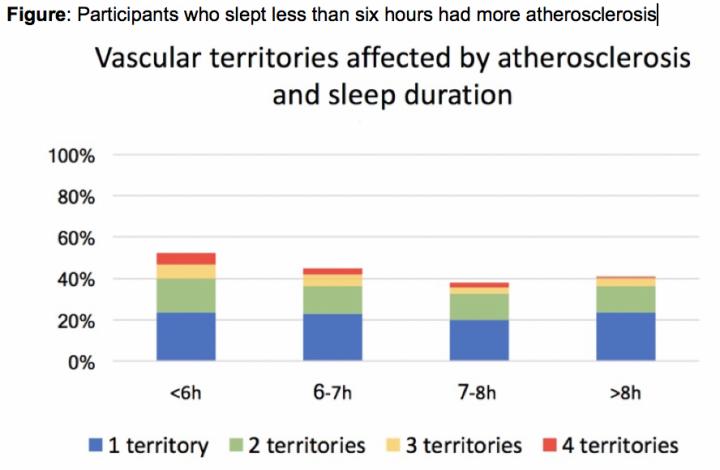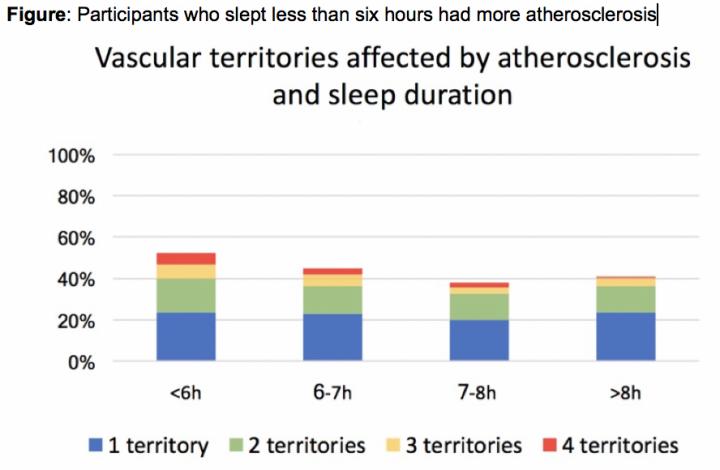
Credit: European Society of Cardiology
Munich, Germany – Aug 26, 2018: Sleeping less than six hours or waking up several times in the night is associated with an increased risk of asymptomatic atherosclerosis, which silently hardens and narrows the arteries, according to results of the PESA study1 presented today at ESC Congress 2018.2
Dr Fernando Dominguez, study author, of the Spanish National Centre for Cardiovascular Research (CNIC) in Madrid, said: "Bad sleeping habits are very common in Western societies and previous studies have suggested that both short and long sleep are associated with an increased risk of cardiovascular disease. However, there is a lack of large studies that have objectively measured both sleep and subclinical atherosclerosis."
The PESA study enrolled 3,974 healthy middle-aged adults who wore a waistband activity monitor for seven days to record sleep quality and quantity. They were divided into five groups according to the proportion of fragmented sleep, and four groups designating average hours slept a night: less than six (very short), six to seven (short), seven to eight (the reference), and more than eight (long). Atherosclerosis was assessed in leg and neck arteries using three-dimensional ultrasound.
The average age of participants was 46 years and 63% were men. After adjusting for conventional cardiovascular risk factors and potential confounding factors, including age, gender, moderate to vigorous physical activity, body mass index, smoking status, alcohol consumption, blood pressure, education level, blood glucose levels, total cholesterol, total calorie consumption per day, marital status, stress and depression questionnaire scores and obstructive sleep apnoea risk (STOP-BANG score), very short sleepers had significantly more atherosclerosis than those who got seven to eight hours (odds ratio [OR] 1.27, 95% confidence interval [CI] 1.06-1.52, p=0.008) (see figure).
Those in the highest quintile of fragmented sleep were more likely to have multiple sections of arteries with atherosclerosis compared to those in the lowest quintile (OR 1.34, 95% CI 1.09-1.64, p=0.006) (figure).
Dr Dominguez said: "People who had short or disrupted sleep were also more likely to have metabolic syndrome, which refers to the combination of diabetes, high blood pressure, and obesity, and depicts an unhealthy lifestyle."
He concluded: "Failure to get enough sleep and restlessness during the night should be considered risk factors for blocking or narrowing of the arteries. Studies are needed to find out if sleeping well and long enough can prevent or reverse this effect on the arteries. In the meantime it seems sensible to take steps to get a good night's sleep – such as having a physically active lifestyle and avoiding coffee and fatty foods before bedtime."
###
Figure: Participants who slept less than six hours had more atherosclerosis
Media Contact
ESC Press Office
[email protected]
@escardio
http://www.escardio.org





